On the occasion of the 40th anniversary celebration of Shenzhen University, in order to promote the deep integration of multiple disciplines such as computing, information technology, society, and economy, the “Interdisciplinary High End Forum on Smart City and Digital Economy” was jointly organized by Guangdong Laboratory of Artificial Intelligence and Digital Economy (SZ) (referred to as Guangming Laboratory), Shenzhen Key Laboratory of Spatial Information Intelligence Perception and Service, Shenzhen Xiangmihu International FinTech Research Institute, and Shenzhen University Big Data Economy and Finance Research Center (Shenzhen Key Research Base of Humanities and Social Sciences) on the morning of May 5th at Shenzhen University. This forum invited 16 experts from various fields such as spatial and geographic information, financial economy, public management, systems science, cognitive psychology, social computing, etc. to attend and jointly explore the path of interdisciplinary development, promote interdisciplinary integration and collaboration.
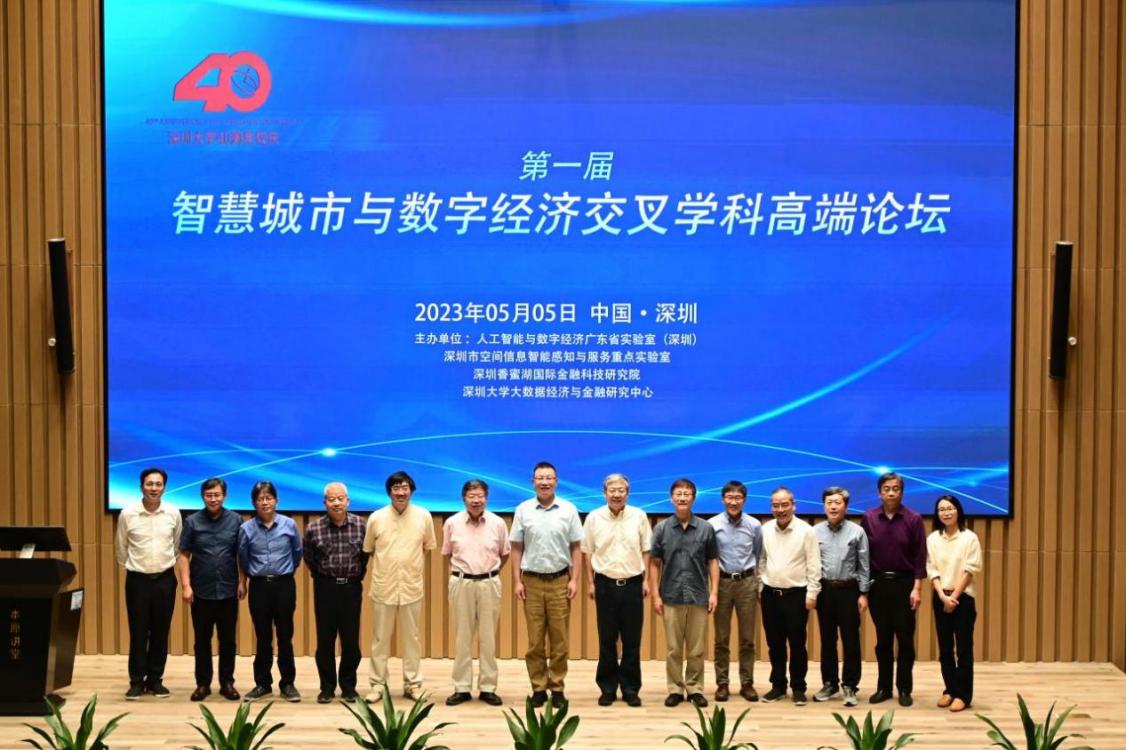
In his opening speech, Li Qingquan, Secretary of the Party Committee of Shenzhen University, stated that the forum invited experts from different fields to jointly discuss the current topic of smart city construction and digital economy development, which was of great concern. Through interdisciplinary collision, it provided a good communication platform for knowledge innovation, talent cultivation, and other aspects; Young teachers and students could also gain more inspiration through discussions and exchanges at observation forums. Such academic exchange was extremely important for a comprehensive university. He hoped that the attending guests could freely discuss their opinions in a relaxed and pleasant atmosphere, and teachers and students could promote work and learning in related fields through this forum.
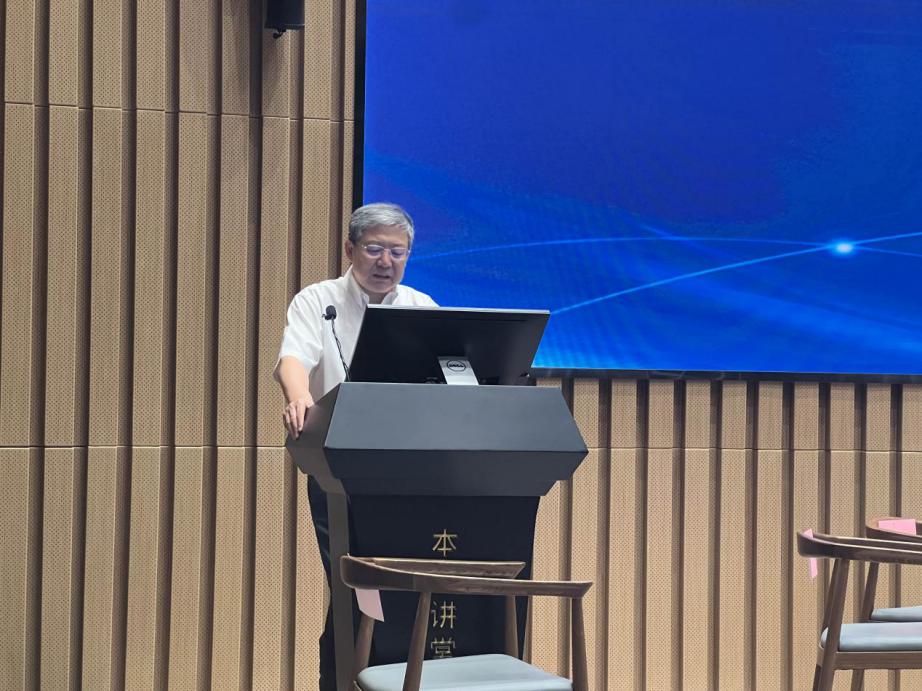
Zhang Kai, Dean of the Shenzhen University WeBank Institute of FinTech (SWIFT) and Dean of the Shenzhen Xiangmihu International FinTech Research Institute, stated that digital technology was driving profound changes in production and lifestyle, and the digital economy has become a new engine for economic development, leading it into a new era. In the digital era, research paradigms related to economics are undergoing profound changes. With computerization and digitalization as the main indicators, the research methodology system of economics, urban science, and other fields has also achieved great development, on the premise of significantly improving computer operational capability and greatly reducing the cost of data acquisition and analysis. Economic data analysis no longer relies on prior knowledge set in conventional economic model forms, but explores the quantitative relationships between different economic variables through data feature mining, making forward-looking predictions for economic development and decision-making. From quantitative analysis to computational analysis, and then to data analysis, it is the result of the deep application of modern information technology to social science research.
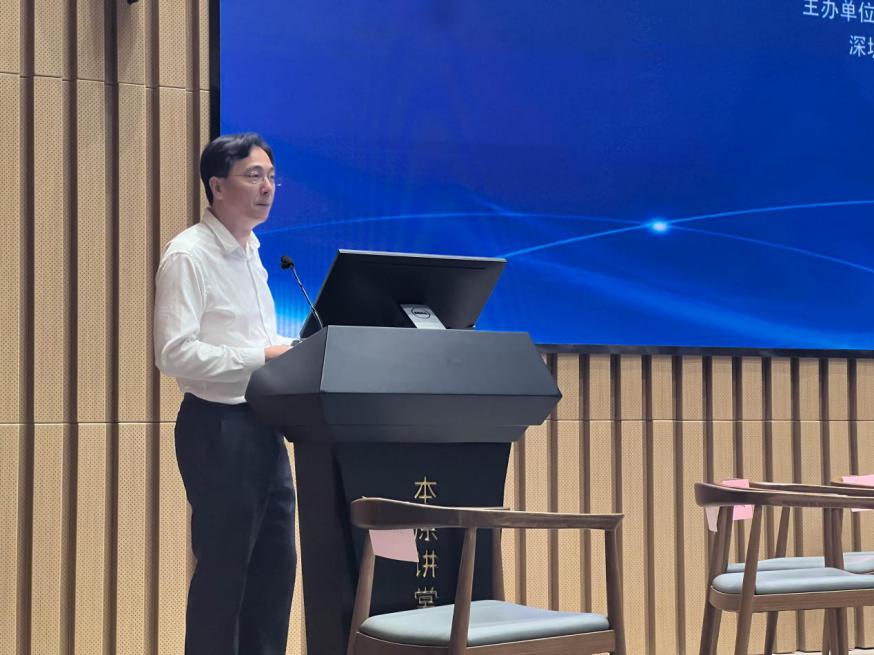
In the first round-table forum, the participating experts discussed “the opportunities and challenges brought by AIGC technology (such as ChatGPT 3.5/4.0) to the research in related fields of digital economy”.
“In recent years, AIGC technology represented by ChatGPT has advanced by leaps and bounds, attracting widespread attention from the theoretical and industrial circles, and is having a significant impact on research and industrial fields. As a new production tool, in what ways will it assist your related research work?” “As a new technology, what potential challenges and ethical issues may AIGC face?” “What are the roles and limitations of AIGC in future academic research?” Zhang Kai, as the host of this topic, proposed the above three topics, which sparked heated discussions among experts. Experts believed that human-machine integration and AIGC technologies such as Chat GPT could provide great assistance to fields such as management, psychology, and geography, while at the same time, attention should also be paid to ethical issues and potential negative impacts of AIGC technology, emphasizing the importance of legal constraints aimed at achieving controllable and bounded AI development.
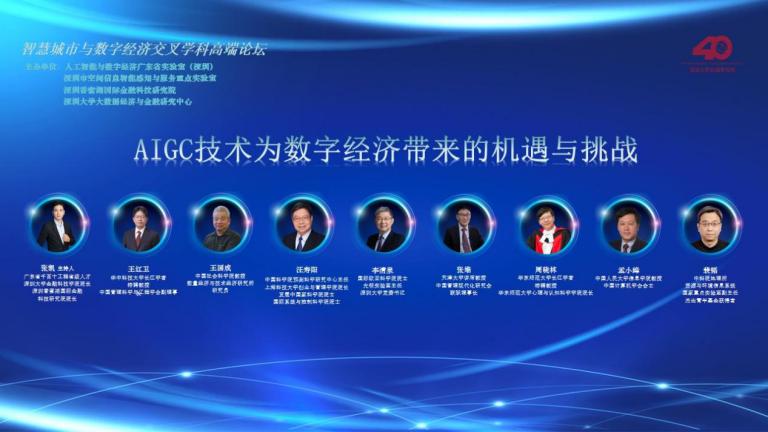
The second round-table forum discussed “Smart City vs. Digital Economy vs. Talent Cultivation”.
“In the context of the digital economy, what aspects of development do smart cities need to strengthen?” “Where are the breakthroughs of smart cities and digital economy in higher education and interdisciplinary fields?” As the moderator of the topic, Le Yang, Director of Shenzhen Key Laboratory of Spatial Information Intelligent Perception and Service and Director of the Department of Urban Spatial Information Engineering of Shenzhen University, proposed the above two topics. Experts generally believed that smart cities should be people-oriented, strengthen the construction of smart societies, and pay attention to social equity and sustainable development. In the context of the AI era, the education system urgently needs to be restructured; Teachers should change their teaching methods, encourage students to develop critical thinking and questioning abilities, and cultivate them to become “versatile individuals” with interdisciplinary literacy.
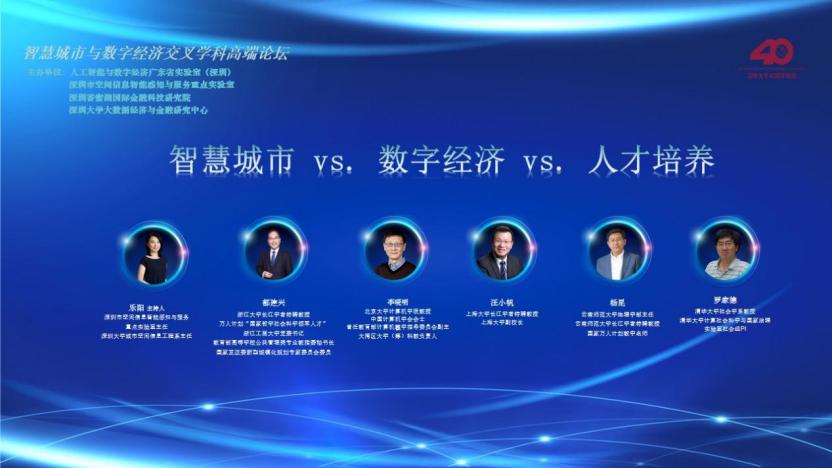
This forum not only promoted exchanges and cooperation in the fields of smart cities and digital economy, but also provided valuable inspiration and reference for talent cultivation in higher education. The successful conclusion of the forum signified that the promising future of interdisciplinary intersection and collaboration has been presented to us, providing impetus and guidance for exploring the future development of artificial intelligence and digital economy fields.